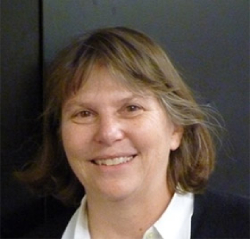2022 Candidate Diane McKnight
 Diane McKnight
Diane McKnight
Professor
University of Colorado
Candidate for: ESA President-Elect
As a graduate student in environmental engineering, I studied aquatic ecology, including two field classes at Friday Harbor Laboratories. For my thesis research, I studied the limnological aspects of the treatment of algal blooms in reservoirs with copper sulfate. From 1979 to 1996, I was a research hydrologist with the U.S. Geological Survey and I then joined the faculty of the Department of Civil, Environmental and Architectural Engineering and a Fellow of the Institute of Arctic and Alpine Research at the University of Colorado. From 2015 to 2018, I was a program officer in the Arctic Program at NSF. My research focuses on the coupling of aquatic ecology, hydrology and water quality. I have studied streams, lakes and wetlands in diverse regions, including acid-mine drainage streams and alpine lakes in the Rocky Mountains, polar desert streams in Antarctica, and wetlands in Botswana and Bangladesh. I was the principal investigator for the McMurdo Dry Valleys Long-Term Ecological Research (MCMLTER) project from 2009-2015. I have served as the President of the American Society of Limnology and Oceanography, acting-president of the Biogeosciences section of AGU, editor of Journal of Geophysical Research-Biogeosciences and have served on numerous committees for the National Research Council. I was the Chair of the editorial committee for the LTER Schoolyard Book Series. I was the 2019-2020 Distinguished Lecturer for the Association of Environmental Engineering and Science Professors. I am the currently Chair of the Executive Board of the Long-Term Ecological Research Network.
What interests, experience or skills would you bring to this position?
I am interested in contributing to ESA’s long-standing and successful support of the ecological community in all its dimensions, especially ESA’s support of early career scientists and students. My previous experience in a leadership role for two other scientific societies with connections to ESA will be useful experience in general. In addition, through my years of service with the USGS and NSF, I have learned the benefits of being both opportunistic and pragmatic in working within an organization to achieve new goals. My connections with the environmental engineering community may be particularly useful, especially given the recent changes in federal agencies that support ecological research.
How would you support ESA’s mission? How would you plan to promote DEIJ in ESA membership and activities if elected?
I would work with colleagues on ESA’s Committee on Diversity and Education and particular sections of ESA, such as the Inclusive Ecology Section, to help move forward programs that are underway or being developed. Ecology is a dynamic and rapidly advancing field of science that has contributed to addressing the global environmental challenges of our time. This impact of ecology will be best advanced by involving individuals from diverse backgrounds. In my experience as an educator teaching applied ecology to environmental engineering students, I have found that students are attracted to ecology as a science that contributes to human welfare and natural ecosystems. I would be interested in amplifying this theme in promoting DEIJ in the ESA membership and activities.